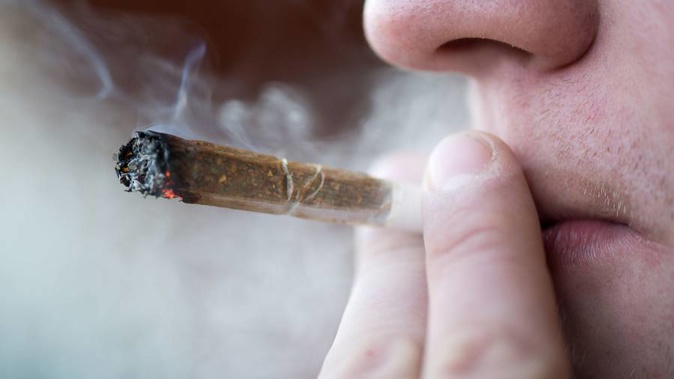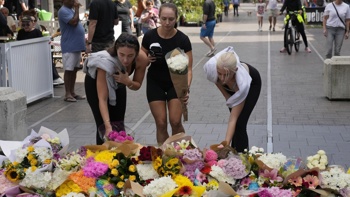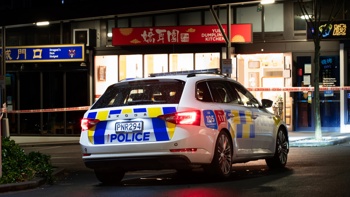
In a Mike's Minute commentary this week, Mike Hosking told his listeners and readers that the government's Wellbeing Budget "subscribed $1.9 billion to mental health, and yet the next move is to decriminalise a substance directly linked to psychosis.
"How mad is that?" he demanded. "How many health professionals do you need to hear from to make up your mind about the madness?"
The answer to these questions can best be found in He Ara Oranga: the Report of the Government Inquiry into Mental Health and Addiction, which, as the NZ Herald observed on its release in December, is the most comprehensive report of its kind in a generation.
The expert panel that delivered the report did not rail against decriminalisation of drugs. It did the opposite. Its list of recommendations called for the replacement of criminal sanctions for use and possession of drugs with civil and health responses.
This position, the panel explained, was the fruit of a national consultation process, where "in relation to illicit drugs, we heard how their illegality poses a barrier to seeking help and how a criminal conviction for drug use has far-reaching impacts across a person's life."
/arc-anglerfish-syd-prod-nzme.s3.amazonaws.com/public/3ZL2TRIY6ZE4RPWEUGJERS2DU4.jpg?width=503&height=351&mode=max)
Russell Brown. File photo / Sarah Ivey
The authors also observed that "criminalisation of drugs is widespread around the world, yet it has failed to decrease drug use or the harmful effects of drug use and has contributed to social issues such as gangs' involvement in the supply of drugs, prison overcrowding, unemployment and family separations."
As a group, the panel represents several of the most distinguished health professionals in the country – a Health and Disability Commissioner, a Families Commissioner, a director of the Mental Health Foundation. Its call to end drug criminalisation was based on more 5000 submissions, many of them from people at the frontlines of mental health work. The call is firm, explicit and reiterated in the text. And it's one that the people Hosking characterised as "those of us who work in the department of common sense" should contemplate.
But what Hosking was fulminating against in his comment was not actually decriminalisation, but the proposal for legalisation and regulation of cannabis that New Zealanders will be asked to vote on next year. It's a common enough mistake for people who have not paid attention to the detail, if perhaps one that public commentators should seek to avoid.
The problem with only decriminalising a substance as widely used as cannabis is in New Zealand (where the majority of us use it at some point in our lives) is that you're leaving production and supply in the hands of criminals. You might have curbed one set of harms, those associated with criminalisation, but you've left yourself no tools to address the others. Criminals rarely ask for proof of age and they're not fussy about dose or purity.
Nowhere that cannabis has been legalised – not Uruguay, Canada or any of the US states – has the population ended up "all stoned" as Hosking thinks New Zealanders would be. The fact is, most of the people who use cannabis are already using it. In Colorado, youth use has been stable since legalisation in 2015, interrupting a rising trend – and, thanks to an education campaign, heavy use by teenagers, which we know to be harmful, has declined. In the first full quarter of legalisation in Canada, a rising trend in youth use has also been, at least for now, halted. The modest increase in first-time use – 3 per cent against 1.5 per cent in the same quarter in 2018 – has been entirely among older Canadians.
What has been proposed in the Cabinet paper foreshadowing the referendum question is closer to Canada than Colorado and more conservative than either. The Ministry of Justice team working on the details is seeking to learn from what has worked best in other jurisdictions, not only in banning advertising and imposing age restrictions and product safety rules, but in the best ways to take the market away from organised crime.
It may also regulate potency, which is another key area for reducing harm. Under prohibition, since the 1970s, THC levels in cannabis have risen sharply – and the ratio of THC to CBD, the cannabinoid with anti-psychotic properties, has fallen far out of balance. A good deal of the harm attributed to cannabis is related to that trend. It's a trend the black market will never reverse – supply will be dominated by what medicinal cannabis campaigner Rose Renton calls "rocket fuel" weed. It is, however, a trend that regulation – and canny tax treatment of higher-CBD strains – could change.
Drug policy is already changing in New Zealand. In response to the recommendations of the Mental Health and Addictions Inquiry, a new amendment to the Misuse of Drugs Act will direct police discretion towards health-based, rather than criminal, responses. Next year, New Zealanders will get to choose whether to do more, and seek to exercise some control of the way cannabis is sold.
That decision should be informed by an attention to evidence, rather whatever we fancy "common sense" to be. And it would be better made without commentators purporting to speak for medical professionals but saying the polar opposite of what those professionals actually believe.
* Russell Brown is journalist, media commentator and the owner of the Public Address community of blogs
Take your Radio, Podcasts and Music with you









